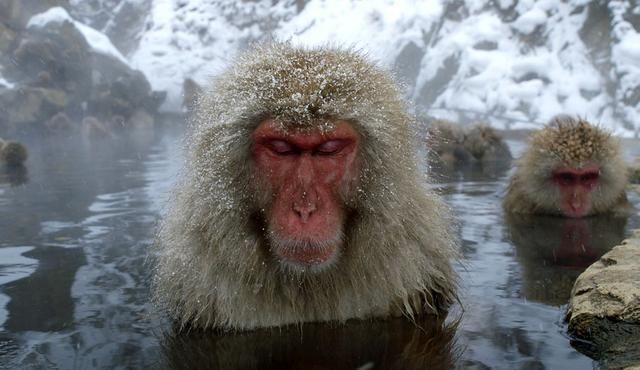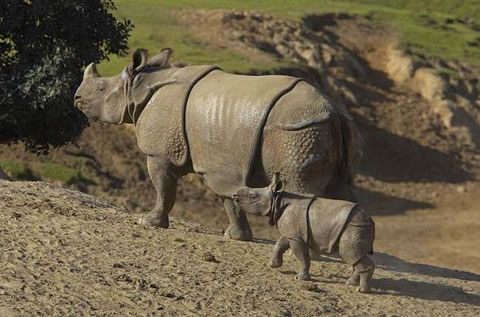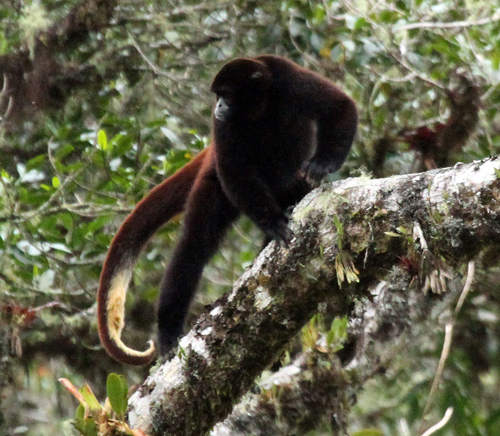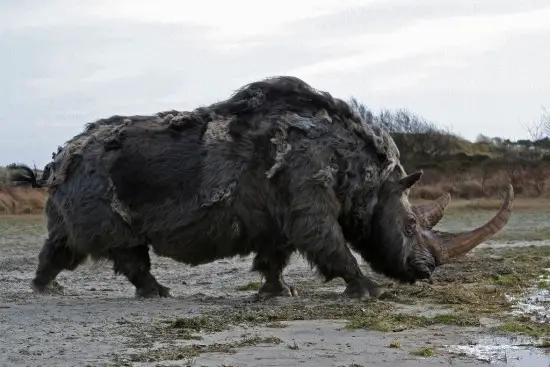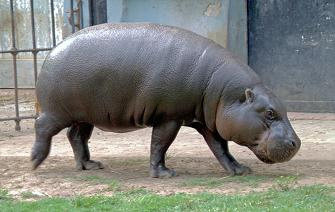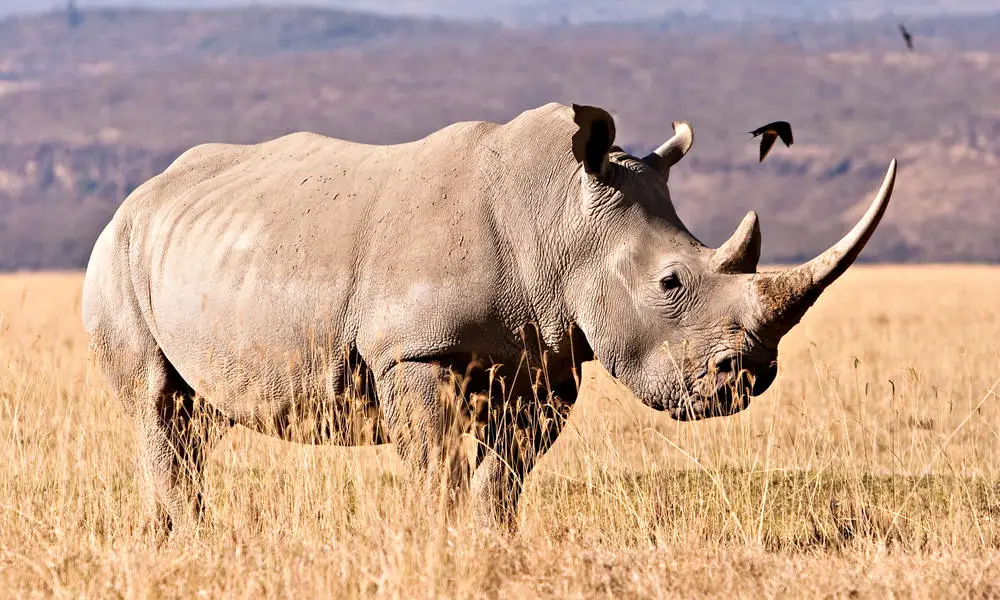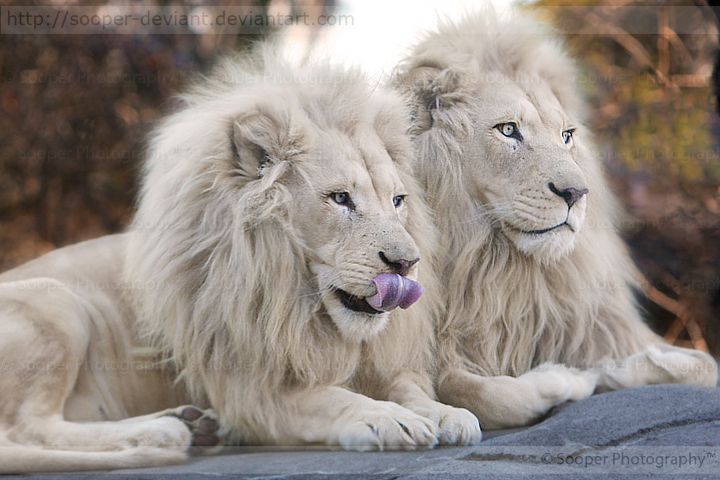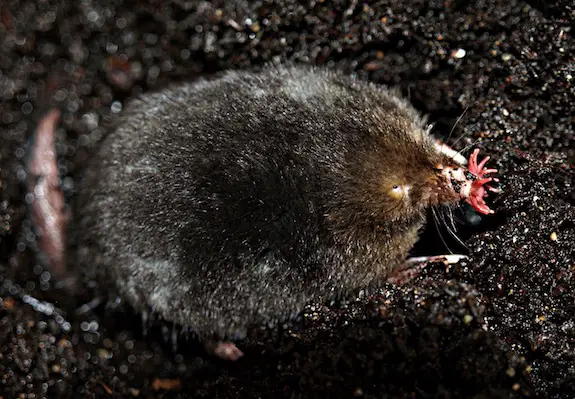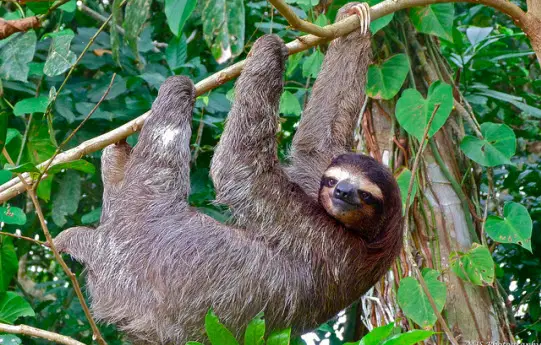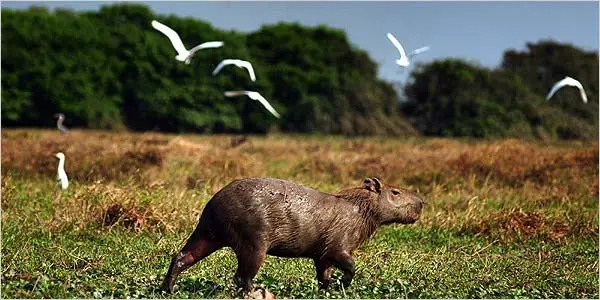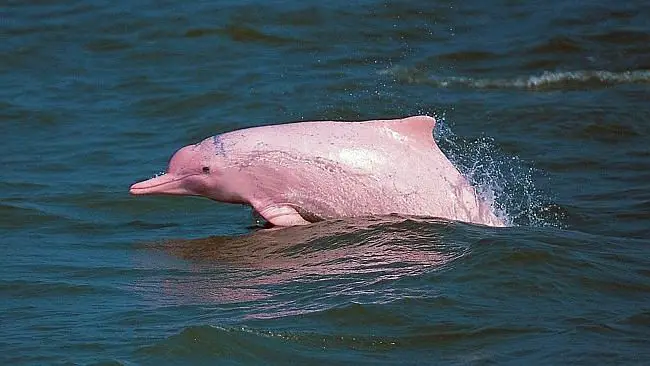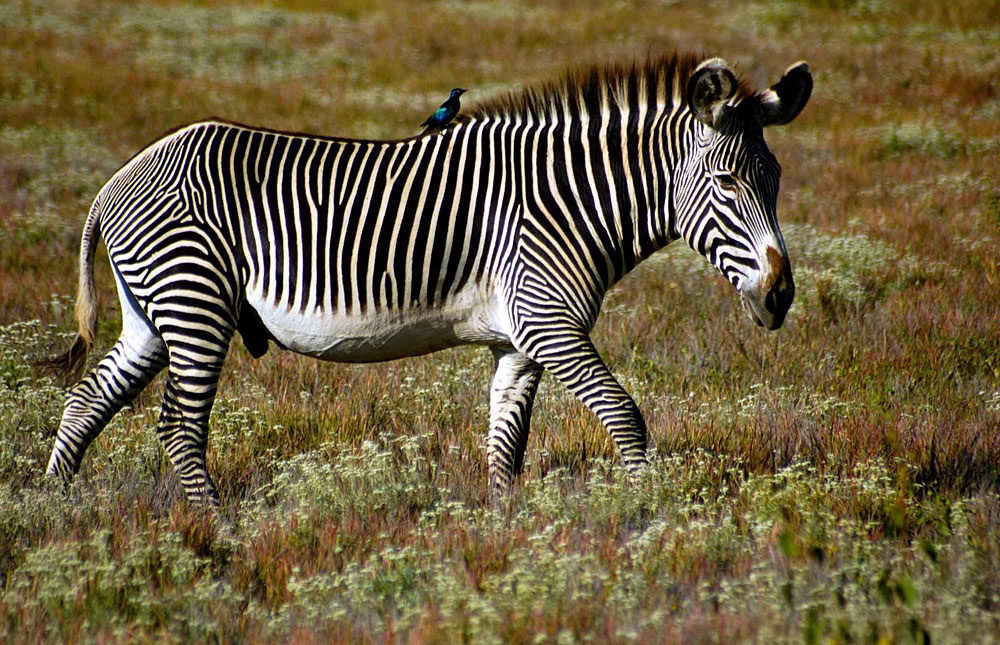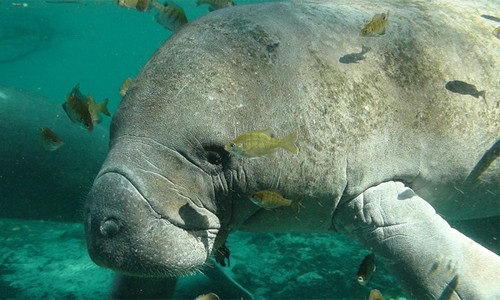Category: Eutheria (Placental mammals)
-
Japanese Macaque Facts | Anatomy, Diet, Habitat, Behavior
The Japanese macaque (Macaca fuscata) or snow monkey is a native species of Japan. It is a New World Monkey. The macaque is thought to survive in extreme cold climates where the land is covered with snow all year round. It is not possible for other primates to live in such cold weather. Japanese Macaque…
Written by
-
Javan Rhino Facts | Anatomy, Diet, Habitat, Behavior
The Javan rhino (Rhinoceros sondaicus) lives in the lowland rainforests of the Southeast Asia but it is a rare rhino species. The animal is a browser and it has got an armor-like skin. There is hardly a single javan rhino remaining in the wild and IUCN has listed it as critically endangered species. Javan Rhino…
Written by
-
Yellow Tailed Woolly Monkey Facts | Anatomy, Diet, Behavior
The yellow-tailed woolly monkey (Oreonax flavicauda) is one of the rare primate species belong to the New World. The monkey is native to Peru. It is found in San Martin and Peruvian Andes. The yellow-tailed woolly monkey is critically endangered but is believed to go extinct in the wild because scientists had only a few…
Written by
-
Sumatran Rhino Facts | Anatomy, Diet, Habitat, Behavior
The Sumatran rhinoceros (Dicerorhinus sumatrensis) is the world’s smallest rhino species. Once distributed in the swamps and rainforests of Thailand, China, Maynmar, Laos, Bangladesh, Bhutan, and India, is now critically endangered. The Sumatran rhino is a rare species in the wild also because they move alone. Sumatran Rhino Facts Anatomy The body length of…
Written by
-
Woolly Rhino Facts | Anatomy, Diet, Habitat, Behavior
The woolly rhinoceros (Coelodonta antiquitatis) believed to be around for thousands of years. It had even existed during the Ice Age. The woolly rhino is now extinct but the animal once lived in the northern Asia and Europe. Scientists have found the remains of woolly rhino from the U.K., Kamchatka, and other parts of Eurasia.…
Written by
-
Pygmy Hippo Facts | Anatomy, Diet, Habitat, Behavior
The pygmy hippopotamus (Hexaprotodon liberiensis) is one of the smallest hippo species. It is mainly found in the swamps of West Africa. The animal is nocturnal and it seems more like its larger cousin, common hippopotamus. It is believed to spend most of its day near water or stream. Pygmy Hippo Facts Anatomy The…
Written by
-
White Rhino Facts | Anatomy, Diet, Habitat, Behavior
The white rhinoceros (Ceratotherium simum) is the largest living rhino species with the heaviest specimen ever recorded at 3,600 kilograms. The southern white rhinos are the most abundant rhinos in the world with the population of more than 17,000 individuals back in Dec 2007. It is also one of the largest land mammals—second only to…
Written by
-
Types of Lions | Different Types of Lions
The lion (Panthera leo) is one of the five big cats that are admired not only for their beauty but also for the harm they do to the wildlife populations. Lions are often seen taking down a zebra or chasing a gazelle in the Serengeti National Park in east Africa. The park is an ideal…
Written by
-
White Lion Facts | White Lion is not a Lion Species
The white lion is not a subspecies of lion instead it is a rare color mutation of the Transnvaal lion (Panthera leo krugeri). They seem to resemble in appearance with the tawny African lion (Panthera leo krugeri). Since it’s not a subspecies none of the white lions are found in the wild. They are bred…
Written by
-
Star-nosed Mole Facts | Anatomy, Diet, Habitat, Behavior
The star-nosed mole (Condylura cristata) is a short-bodied small mole found in the extreme southeastern Georgia. It appears to have a snout which the animal uses as a touch organ. There are more than 25,000 minute receptors in the mole’s snout. They have the most bizarre noses in the entire animal kingdom. The star-nosed mole…
Written by
-
Sloth Facts For Kids | Anatomy, Diet, Habitat, Behavior
Sloths (Megalonychidae) are the medium-sized mammals that occur in the tropical rainforests of the Central and South America. Sloths are unique in their physical appearance and features. Their long limbs and long shaggy coats make them stand out among the rest of the mammalian kingdom. They are almost the size of a large domestic cat.…
Written by
-
Amazon River Dolphin Facts | Pink River Dolphin
Amazon River dolphin (Inia geoffrensis) is the world’s largest river dolphin with the length reaching at 225 cm. The males are significantly greater in size and heavier than the females. It is also called boto in Brazil, keep on reading these Amazon River Dolphin Facts to know more about these amazing dolphins. The amazon river dolphin…
Written by
-
Are Zebras Endangered | Saving Zebras
Zebras are the species of African equids and they are separated by their unique black and white stripes. They are medium-sized herbivores with long necks and heads. The legs are slender. The African zebras are classified into three distinct species: Grevy’s zebra, the plains zebra and the mountain zebra. Are Zebras Endangered Some of the…
Written by
-
What Do Manatees Eat | Manatees Feeding Behavior and Diet
The manatee (Trichechidae) is a massive animal with an uncomplicated behavior. Scientists believe that manatees are semi-social mammals. While they are mostly herbivorous manatees also feed on small animals because of their opportunistic nature. Read on to know what do manatees eat to fill up their big tummy. They are typically slow swimmers because their…
Written by

